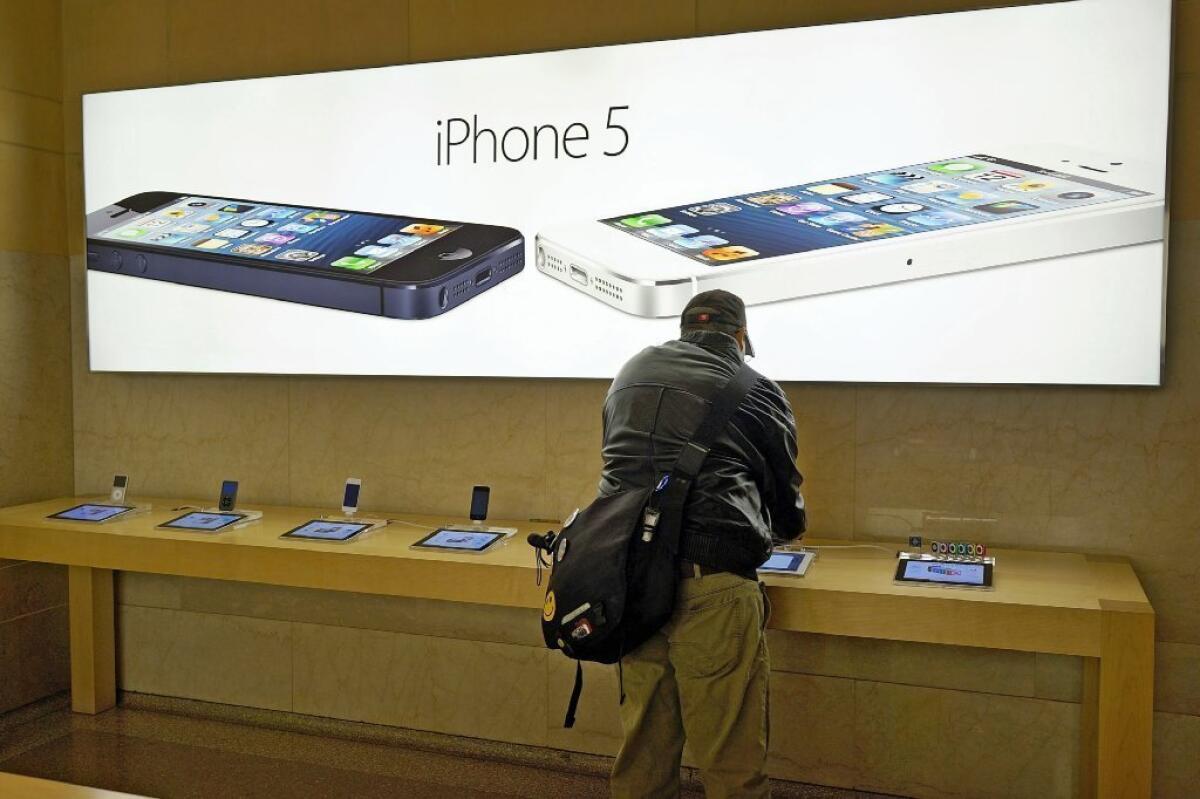Proponents of cellphone unlocking ask the White House for help

Proponents of cellphone unlocking are trying to gain the White House’s support through a petition drive, but they face a couple of non-trivial hurdles. First, they have until Saturday to reach 100,000 signatures — the new threshold the Obama administration set for responding to petitions on its We the People site — and they were more than 25,000 short as of this writing. And second, even if they hit their target and win over the administration, it’s not clear the White House can do much to help.
At issue is the Librarian of Congress’ decision last October to end an exemption in federal copyright law for cellphone unlocking. Under the 1998 Digital Millennium Copyright Act, it’s illegal to circumvent electronic locks that protect a copyrighted work. The law called on the Librarian of Congress to grant exemptions every three years as needed to let people make non-infringing uses of such works, and such exemptions were granted for cellphone unlocking in 2006 and 2010. But prodded by the head of the Copyright Office, the Librarian reversed course last year, finding that people who wanted to unlock their phones could do so by asking their phone company for permission.
As a result, those who want to switch mobile phone companies without buying another pricey smartphone, or to use their phone on a foreign network without paying roaming charges, have to rely on the beneficence of the carrier that sold them the phone. Just imagine how that conversation will go: “Hi, I used to be a customer, can you help me use one of your rivals’ networks?”
The Times’ editorial board was one of many outlets decrying the ruling, writing, “it’s hard to see the connection between the locks and the software creators that copyright law were supposed to protect.” The board added, “Clearly, the point of the locks isn’t to protect Apple, Google and other creators of copyrighted phone software; it’s to protect the phone companies’ revenue streams.”
Sina Khanifar, an entrepreneur in San Francisco who helped obtain the original exemption for unlocking cellphones, filed the We the People petition shortly before the librarian’s latest decision went into effect in January. Noting that “the great majority of phones sold” are locked, it argues that locking reduces consumer choice and decreases the resale value of a phone. It concludes, “We ask that the White House ask the Librarian of Congress to rescind this decision, and failing that, champion a bill that makes unlocking permanently legal.”
But the Library of Congress is a legislative branch agency, not one subject to presidential oversight. Besides, the law provides no avenue for appealing the librarian’s decisions. Ironically, the original unlocking exemption drew a lawsuit from TracFone, a company that makes cellphone software, said Jason Schultz, a copyright law expert at UC Berkeley. But after the Justice Department weighed in, arguing that there was no legal basis for the lawsuit, TracFone withdrew its complaint.
Khanifar conceded that there’s a jurisdictional problem with his petition, but said he didn’t want to wait three years for the librarian to grant the next round of exemptions. While he hopes the White House can “put pressure on the library” to reverse course, the more reasonable hope is that the administration might put its support behind a legislative fix.
Even if President Obama personally endorsed a cellphone unlocking bill — which seems unlikely, given how many other, higher priority issues he has on his plate — it wouldn’t necessarily make the bill’s path to passage any easier. That’s because of the politics surrounding copyright issues make it hard for Congress to do anything that could be seen as encouraging piracy.
The DMCA’s anti-circumvention provisions could definitely use a tuneup, having been stretched beyond their intent by companies eager to guard against business-model disruption more than copyright infringement. But with the entertainment industry and other copyright-intensive companies firmly opposed to any weakening of those provisions, Congress has been loath to revisit the law. Nor does the mobile phone industry support an exemption for phone unlocking, which its trade association argues would deter investment in phone operating systems and related software.
That’s difficult to believe, considering that the iPhone and Android mobile ecosystems were developed during the years when phone unlocking was legal. Nevertheless, the phone industry’s stance is another indication of how tilted the legislative playing field would be against Khanifar and his allies.
ALSO:
Bill Gates says he’s ‘not satisfied’ with Microsoft
Google to open its own retail stores this year, report says
Burger King’s Twitter account hacked, made to look like McDonald’s
Healey writes editorials for The Times. Follow him on Twitter @jcahealey
More to Read
Start your day right
Sign up for Essential California for news, features and recommendations from the L.A. Times and beyond in your inbox six days a week.
You may occasionally receive promotional content from the Los Angeles Times.







